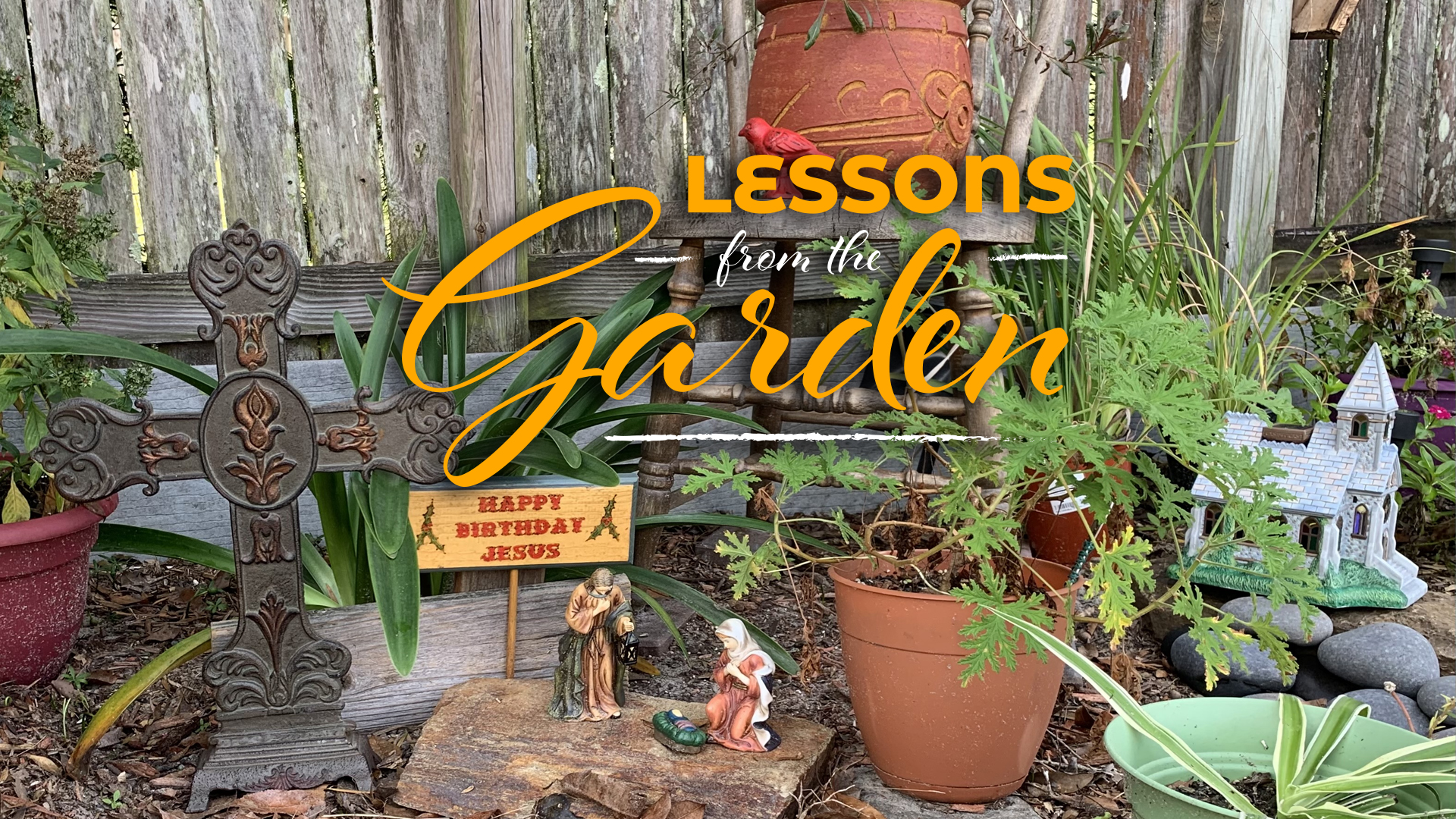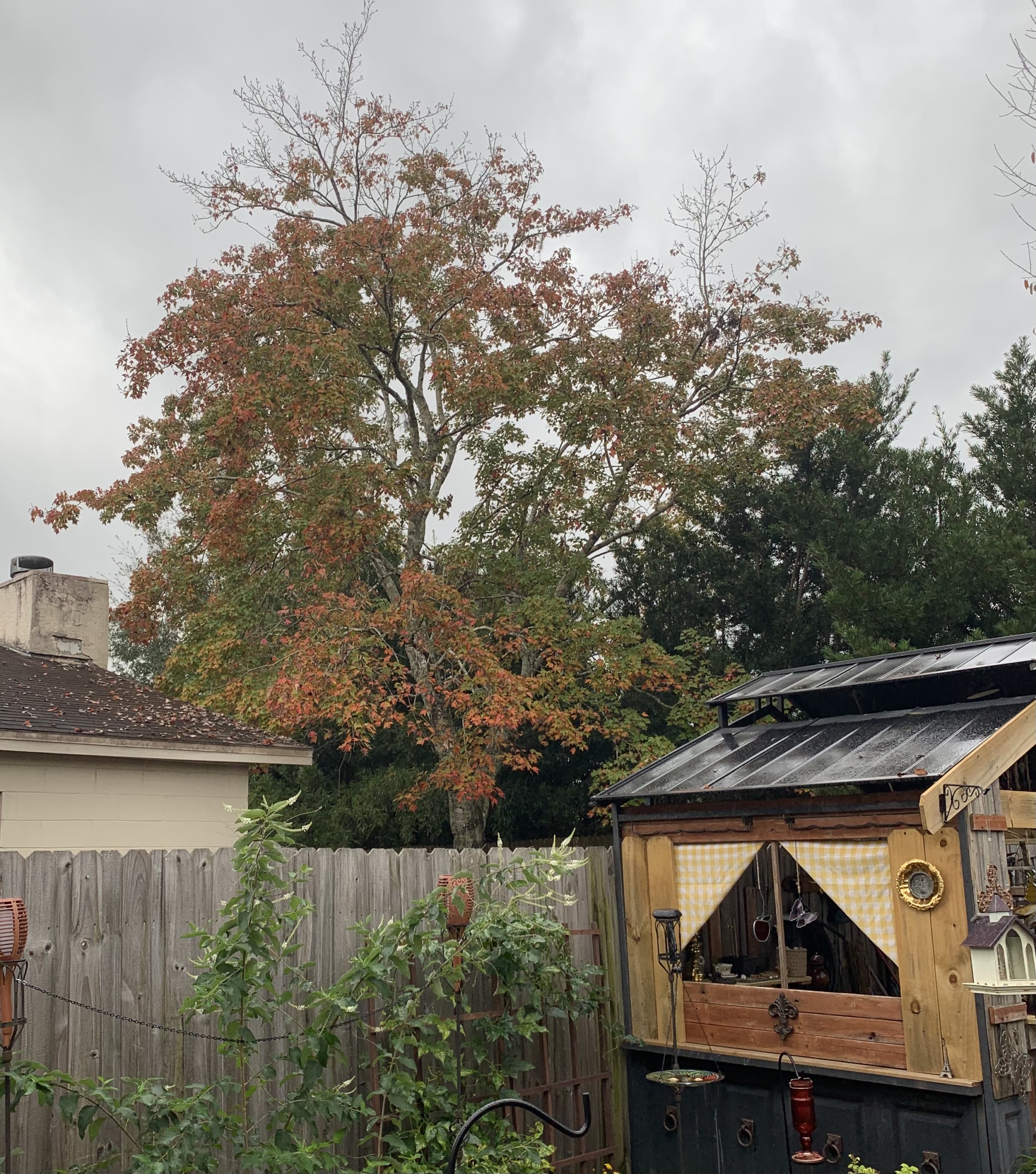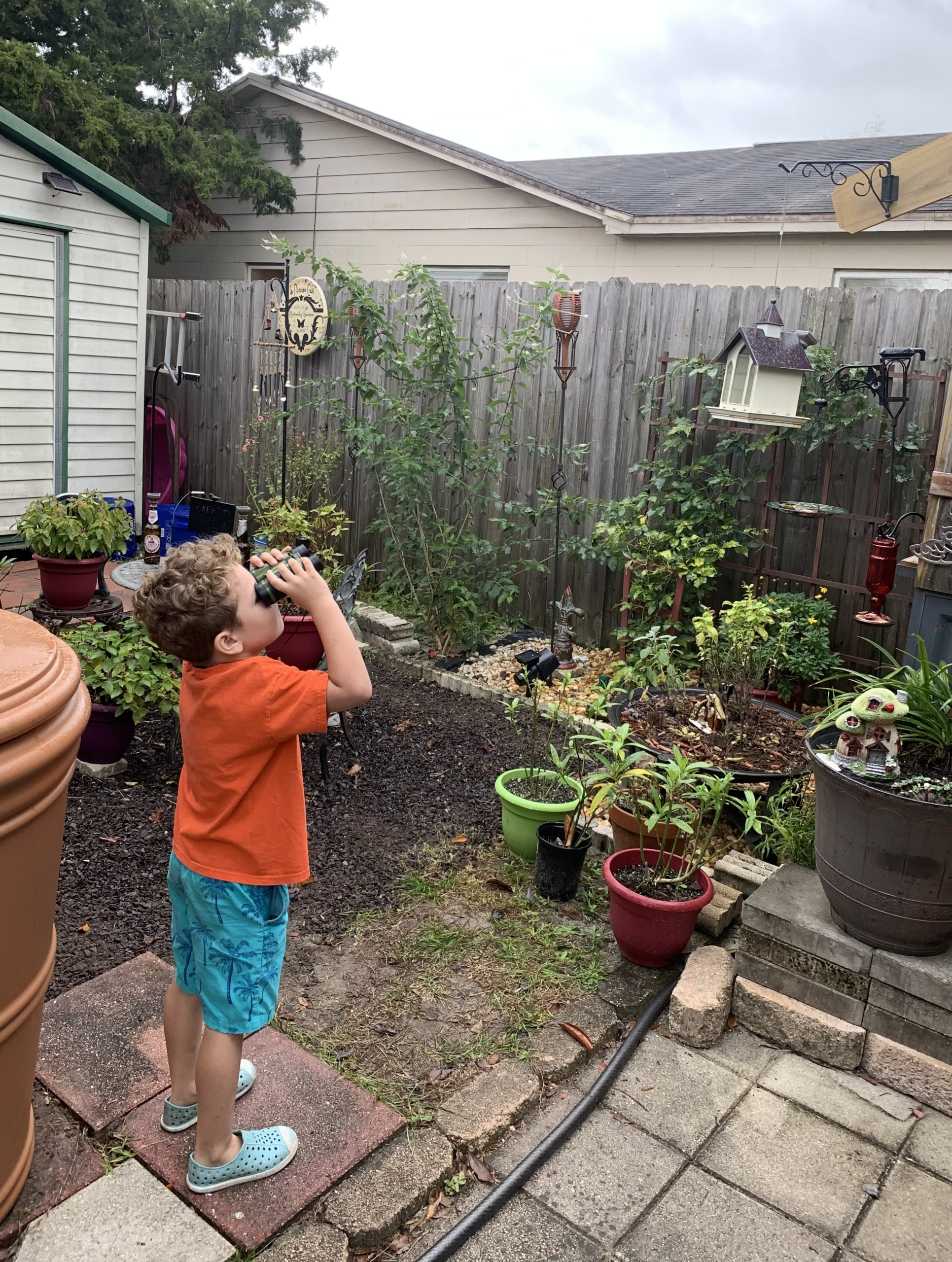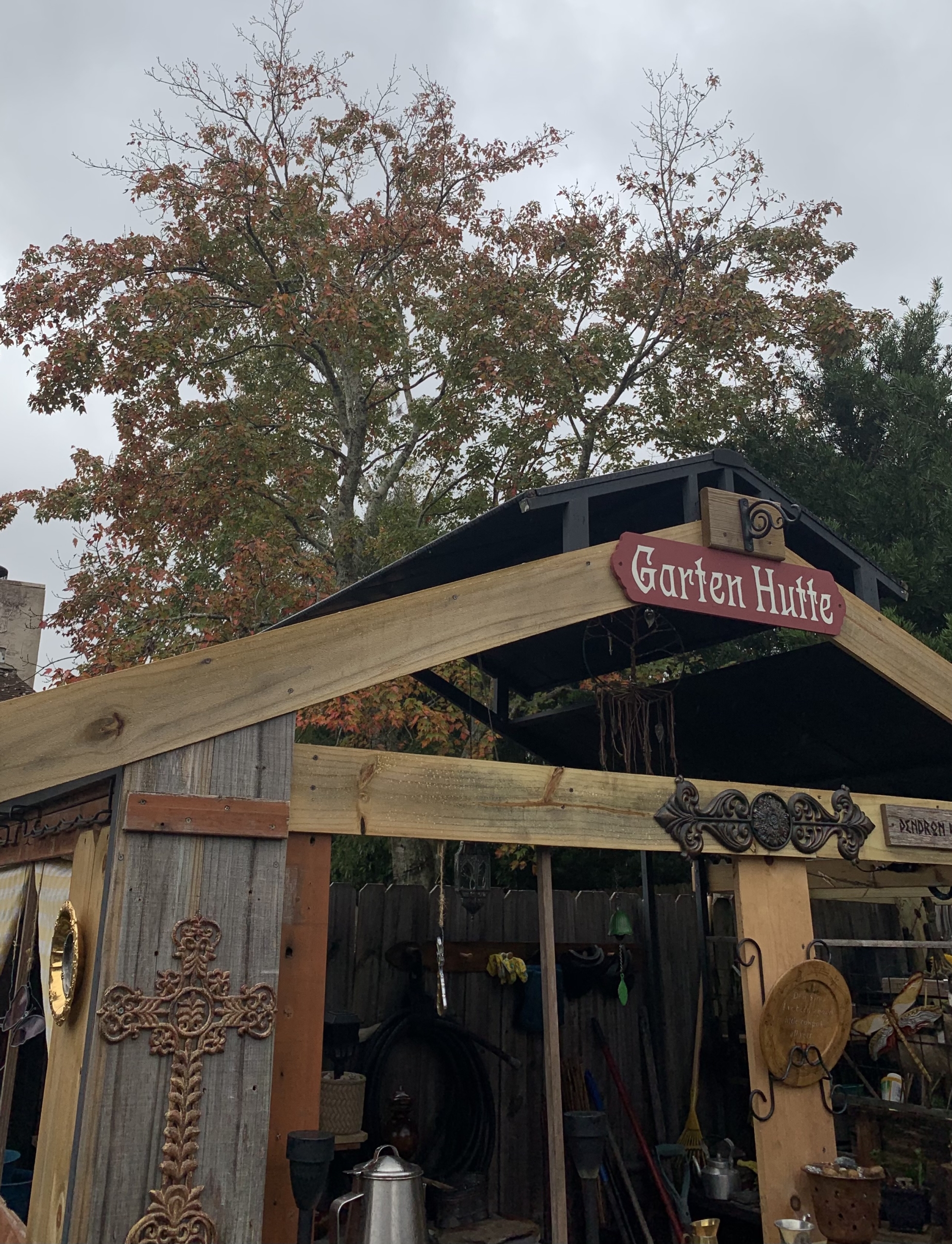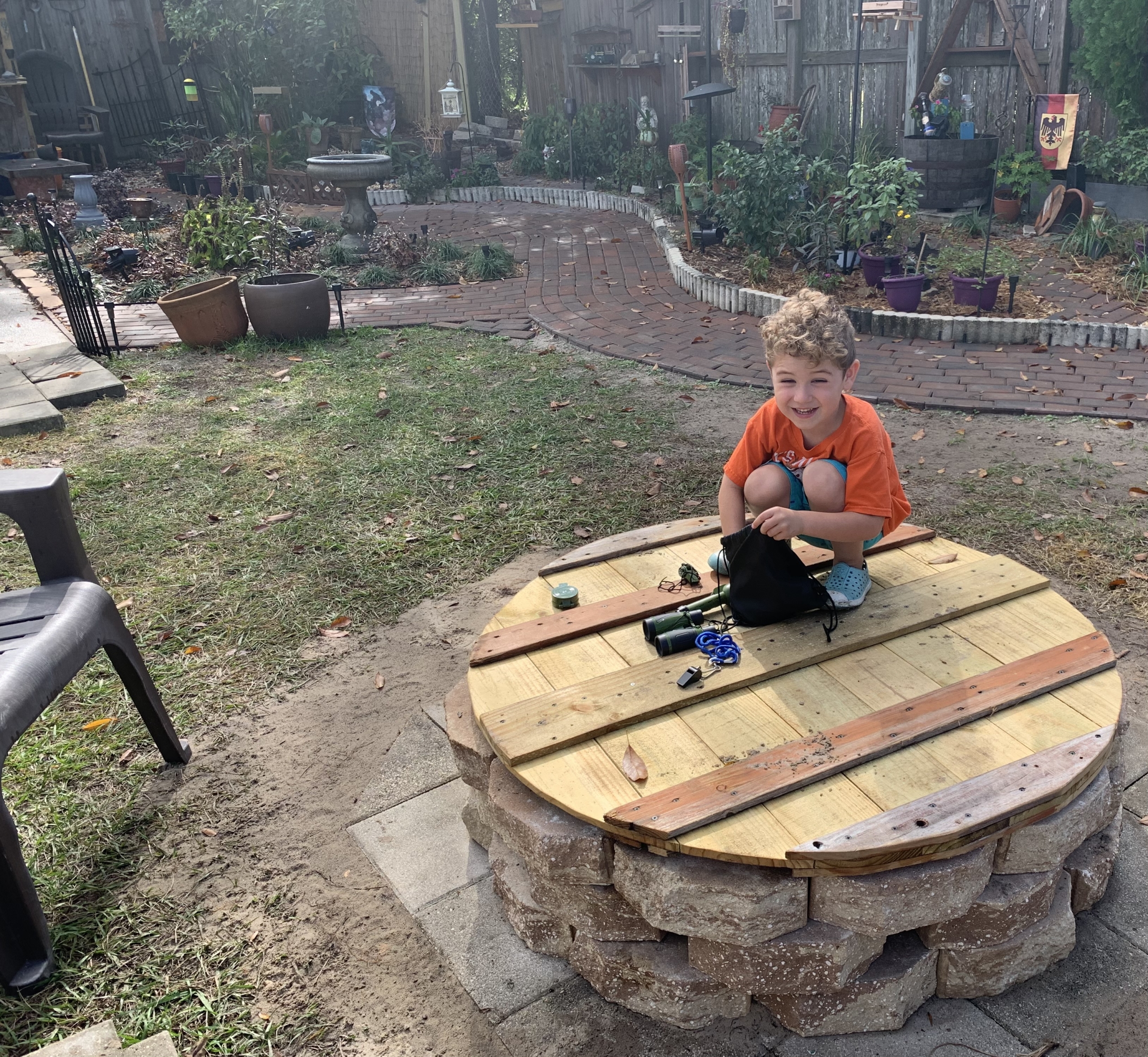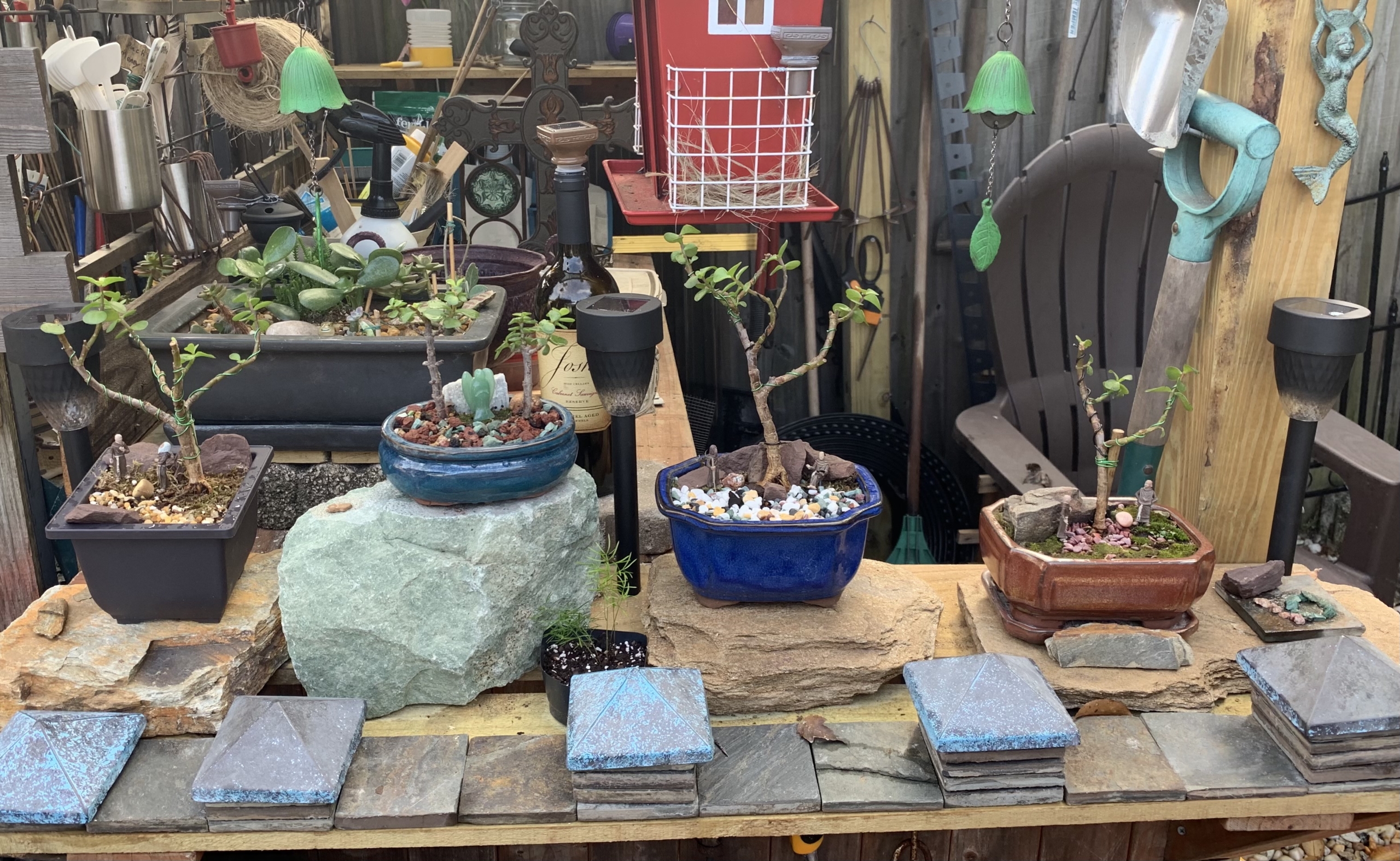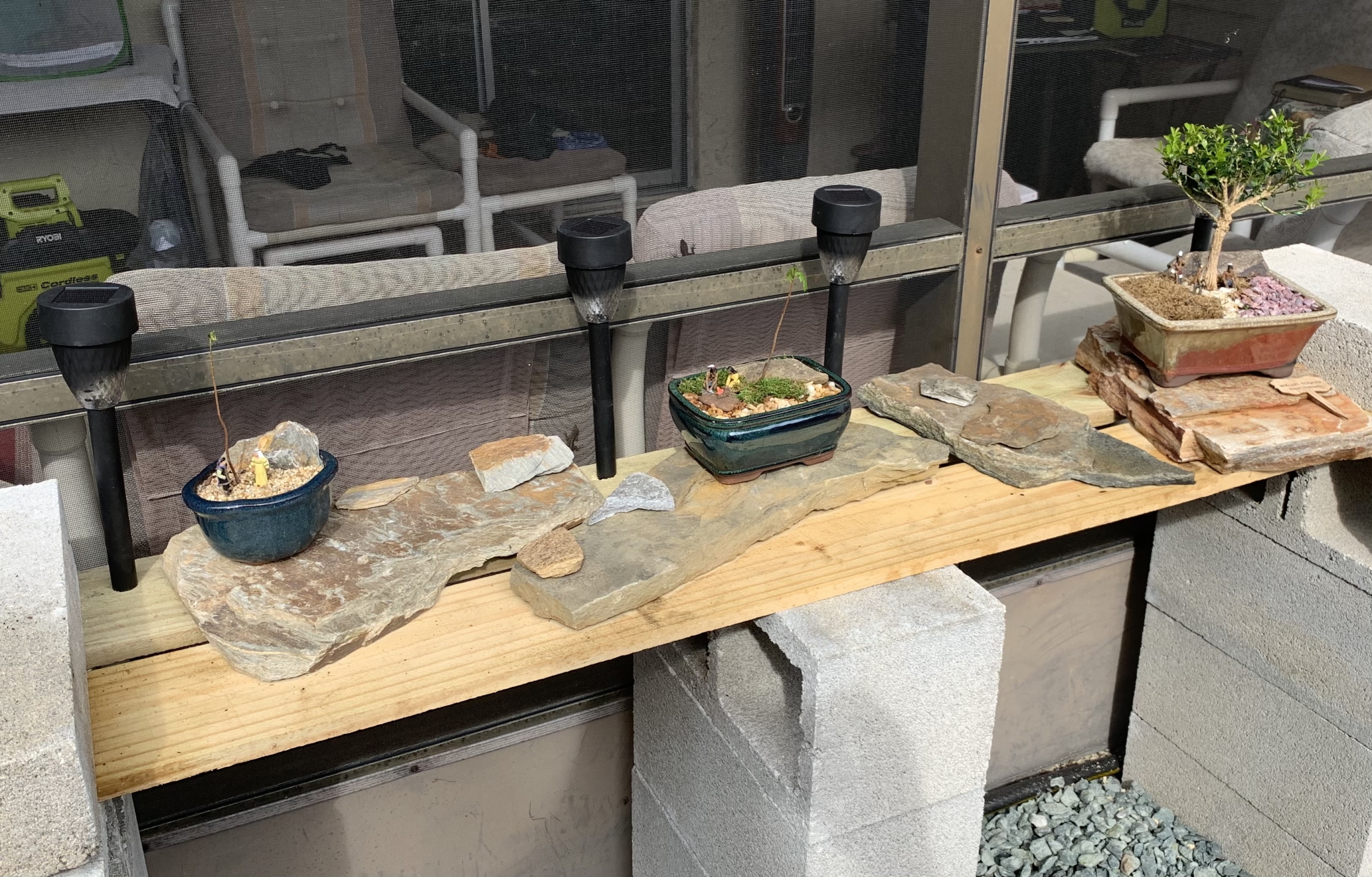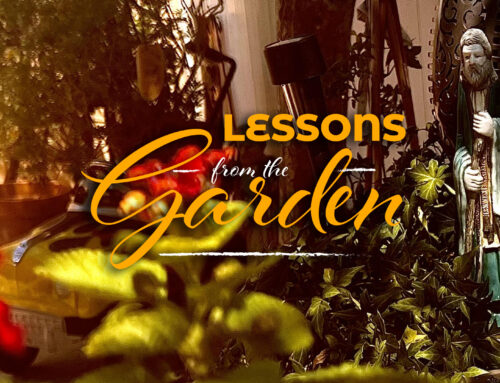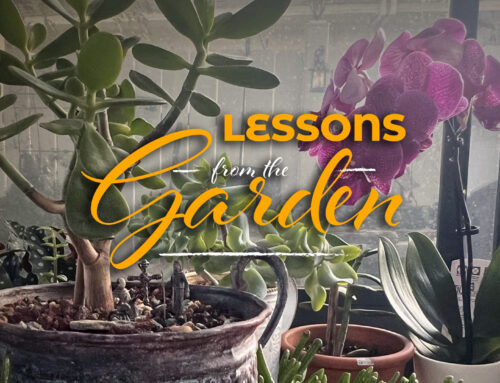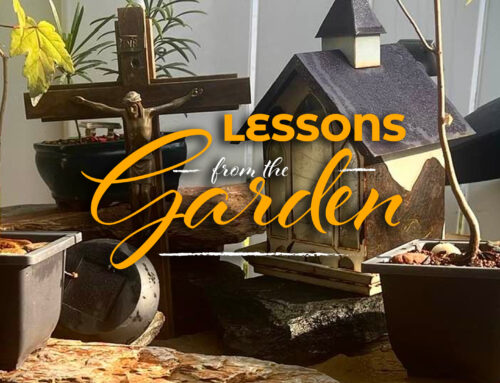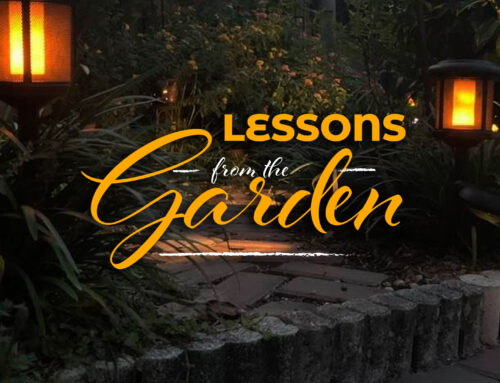It is a cool fall day, and a day of contemplation. I sat in the garden last week speaking to a friend. The conversation we were having as the birds flew in and the squirrels scampered about was about God’s will. Many often misunderstand what it means to live in God’s will. When I was young, I had this image in my mind that God had a book, the book of my life-past, present and future. The exercise of living in God’s will seemed to be me trying to figure out what God wrote in his book on the next page of my life. And you know what? It was a mystery. It was hard to figure out what was on the next page. I often felt that I must have missed the mark, because so often, the results of my decisions just turned out sour, lackluster, or a mess. The mystery of living in God’s will perplexed me.
As we talked, I explained to my friend what God’s will meant in actual life here on the ground. I have always told others that living in God’s will meant, “doing the right thing, not necessarily what benefits you, but what is morally and ethically right to do.” If you have ever talked to me about this or hear me preach, you probably heard me say that. But I always found that even this shred of a revelation didn’t tell the complete story, it just summed it up. But there is a lot in between, and that is what I want to share with you today.
God heard the conversation my friend, and I had on that fall day in the garden. Yesterday before the church arrived in the building, I sat reading an influential book, “The God-Shaped Heart: How Correctly Understanding God’s Love Transforms us” by Timothy R. Jennings, MD. As I read the next pages in the chapter, I realized that God was speaking to me through Dr. Jennings. I realized that God was revealing the answer to the mystery I pondered about living in his will. I love these conversations with my creator, my Lord, and yet my friend.
First, though, I feel it important to mention that if you are interested in knowing God’s plan for your life, then it is most important to learn to walk with God. Reading this today may help in that aspect. Anyway, I sat there before the church arrived, engrossed in this conversation with Dr. Jennings through his book, as well as with Jesus as I listened to these words. I will only touch on the meat of this conversation, but you should really read the book for the gravy. It is on page 52, “The Seven Levels of Moral Decision Making”. I chuckle as I write this because I was only reading from where I left off, I wasn’t seeking an answer to my mystery of living in God’s will. But Jesus is like that. He keeps the conversation going. That is one reason it is important to learn to walk with God. You stay in the conversation.
Let me also say that as I write this today, there are dark clouds in the sky, and a building breeze, however, life is abundant all around me as I watch squirrels scamper about in the garden and as I hear bells every time a bird lands or leaves one of the many feeders.
I want to share these seven levels of moral decision making. I’ve always known that the taproot of the mystery of living in God’s will means doing what was right. “Blessed are those who hunger and thirst for righteous, for they shall be filled.” Jesus says, while speaking to the multitudes at the Sermon on the Mount. But what do the deeper roots look like under the surface of “do what is right”?
Here is the meat, but again, you will have to read the book for the gravy. There are seven levels of decision making in our ability to comprehend what is right or wrong. When we understand what they are, we all see that we already operate on many of these levels as we decide things, and, we can better understand how to make decide things based on living in God’s will.
The first level used to make decisions is, “Rewards and Punishments”. I know that as I spend days in the garden with my 4-year-old grandson, that is often all he understands. But he is a 4-year-old. When an adult operates on this level, things can go terribly wrong. Rewards and punishments, whether I will get what I want or whether I will get in trouble for it, often leaves me frustrated. Usually without what I want AND in on top of that, trouble for it. God did not create us to make decisions solely on this level of understanding. God made us in his image, I want to understand his heart, which helps me understand my heart, and helps me make decisions.
The second level used to make decisions is, “Market Place Exchange”. This level of morality, quid pro quo, “you scratch my back, I’ll scratch yours”, or doing something in exchange for something of value, can lead to a disastrous outcome morally, and a mess. There must be more to our decision-making process.
The third level used to make decisions is something we all fall prey too. It’s called, “Social Conformity”. At this level of making decisions, right and wrong are determined by your community consensus. Whatever community or communities you belong to, your work community, your gym community, your family community, your church community and even your friend community, right is determined by approval of the communities in your life, by your peers. I guess that is where the term, “peer pressure” comes from.
On to level four. This level of decision making is important, but it should never stop here. The fourth level used to make decisions is, “Law and Order”. Right and wrong are determined by a set of established laws and a system of rules, impartial judges, and even prescribed punishments. At this level of making decisions, we defer to judgement by elected officials and other authorities. In fact, we rarely question them. The other levels don’t require a lot of thinking, “Hey, it has to be right if it is what I want, and everyone around me seems to agree, and I won’t get in trouble for it, right?”
All these levels play a part in making decisions. The question is, where do we stop, or where do we hover in the decision-making process? Do we make decisions based only or largely on these four levels? If we do, will our decisions always be morally and ethically right? Will we be then be doing the right thing, and more so, are we living in God’s will? This is where Jesus says, “Here, let me roll up my sleeves and show you the right way to make decisions.”
The fifth level is where Jesus steps in. The fifth level of decision-making is, “Love of Others”. Level five morality understands that doing what is right, living in God’s will, is determined by doing what is in the best interest of others because they have value, irrespective of any rule or pressure, getting what we want, or what we can get away with. Jesus operated on this level and showed this level of decision making when he touched lepers, when he spoke to women, and even when he socialized with tax collectors. These were all decisions that violated the norms and rules of the authorities, sometimes as well as his peers. Jesus put others first in making those decisions, not himself.
The sixth level goes even further, and I think you will agree, it is what we all desire to do, it is, “Principle-based Living”. Our decisions become more than about rules, pressure, and rewards or even punishments. Our decision making becomes “others based” rather than “me-based”. Making decisions understands the protocols and principals God, the creator of the universe, constructed so that we might live in harmony with life. This way of living, by God’s principals, is why mature people don’t commit adultery, why they don’t harbor resentment, and even why they don’t tell untruths or cheat on their taxes. Jesus lived in harmony with God’s principals and revealed God’s character of love in everything he did. I want to do that. Do you?
There is a seventh level of comprehending right and wrong to help us make decisions that lead to living in God’s will. This is what I want my friend to know and what I want you to know. Remember I said earlier, “that if you are interested in knowing God’s plan for your life, then it is most important to learn to walk with God.” Well, that is where level seven comes in.
The seventh level of determining right and wrong, helping our decisions and living in God’s will, is being an “Understanding Friend of God.” Follow me here because this is important. You may still have questions and if you do, keep asking. Keep seeking the answers to those questions so that you will have a deeper understanding of living in God’s will. At level seven, we not only love God, Jesus, and the Holy Spirit, we not only love others, and importantly, we not only understand the design protocols God built into our lives, but we also understand God’s purpose. At this level we are intent in choosing to cooperate in fulfilling our role in his purpose. Okay, there are still questions, and I will attempt to help a little here, but for the gravy and all the fixin’s, for the even deeper roots, read the books, “The God-Shaped Heart”, and the Bible, not all at once necessarily, just start reading.
When we function at the seventh level, and understand God’s character as revealed through Jesus, his character of love, and we also begin to understand God’s nature and design for life, we will naturally make solid, moral, and ethical decisions, and more importantly, we will live in God’s will.
Okay, here is where you may have a lot of questions. We must seek to understand the original purpose for the creation of humanity, the origin of evil, the nature of sin, the weapons of Satan, the fall of humanity into sin, God’s working through human history, the purpose of the cross, and the ultimate cleansing of the universe from sin. Jesus said to seek, and we will find, to knock, and he promised to answer the door inviting us in. God gave us a Gardeners Manual called the Bible to help us live in harmony in the gardens of our lives. Seek answers to the questions you have.
“Then you will call upon me and come and pray to me, and I will hear you. You will seek me and find me, when you seek me with all your heart.” ~~ Jeremiah 29:12-13
I mentioned it was cloudy today in the garden. It started raining, just a drizzle. But guess what, just as I am finishing this, the sun is shining, bringing some warmth. It is a good day in the garden. The squirrels are back and happy with the sun; the birds are flying in for my entertainment, and my grandson is on an adventure in the garden. I think I will decide to join him. We will spend the rest of the day on an adventure together.
